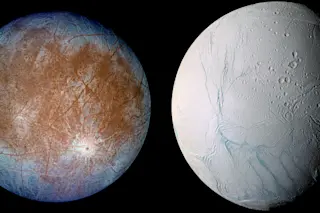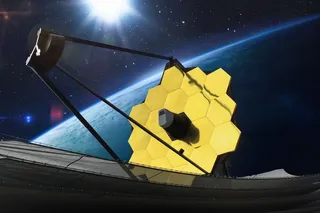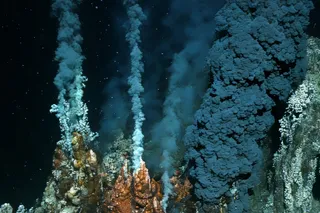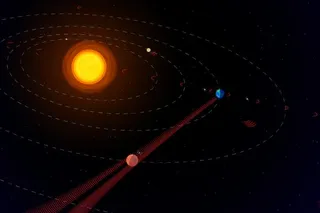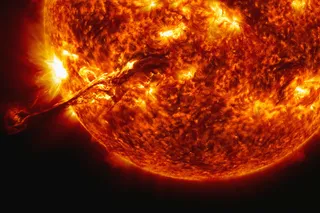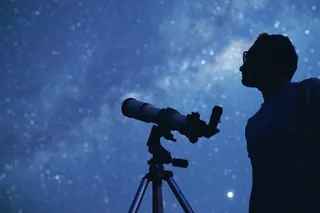A new instrument aboard NASA’s Europa Clipper may be sensitive enough to detect any life emanating from the plumes of far-off icy moons like Saturn's Enceladus and Jupiter's Europa. Over the years, scientists have found evidence of water underneath both moon’s frozen surfaces.
The instrument dubbed the SUrface Dust Analyzer (SUDA) on the Europa Clipper, can detect even the slightest biological signatures in one out of hundreds of thousands of grains of ice from plumes on Europa and Enceladus. "Our results give us more confidence that using upcoming instruments, we will be able to detect lifeforms similar to those on Earth, which we increasingly believe could be present on ocean-bearing moons," said Fabian Klenner, an astrobiologist and study lead author at the University of Washington, in a press release. Details on the study were published in Science Advances.
Engineers from JPL and the Laboratory for Atmospheric and Space Physics (LASP) ...


